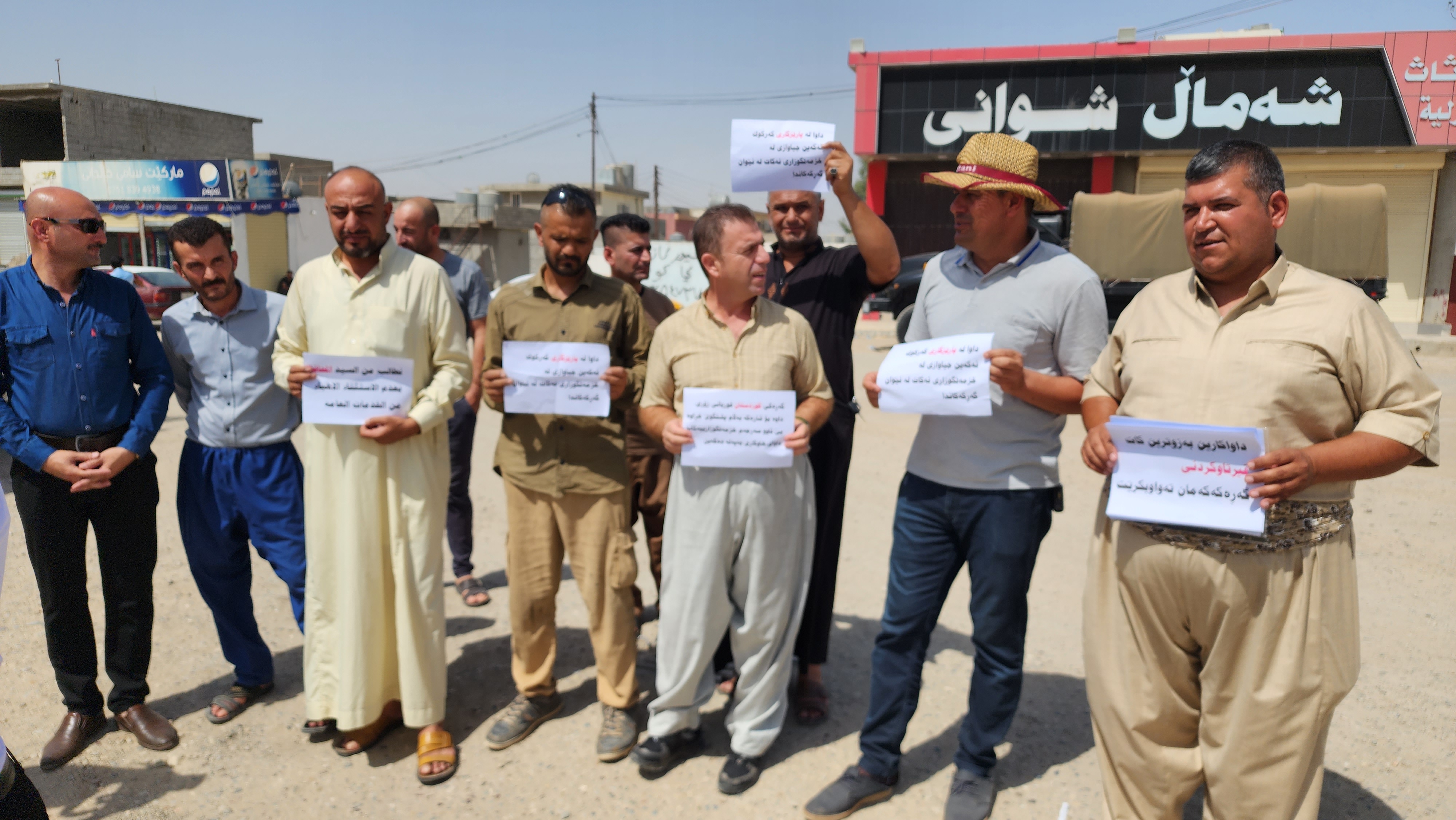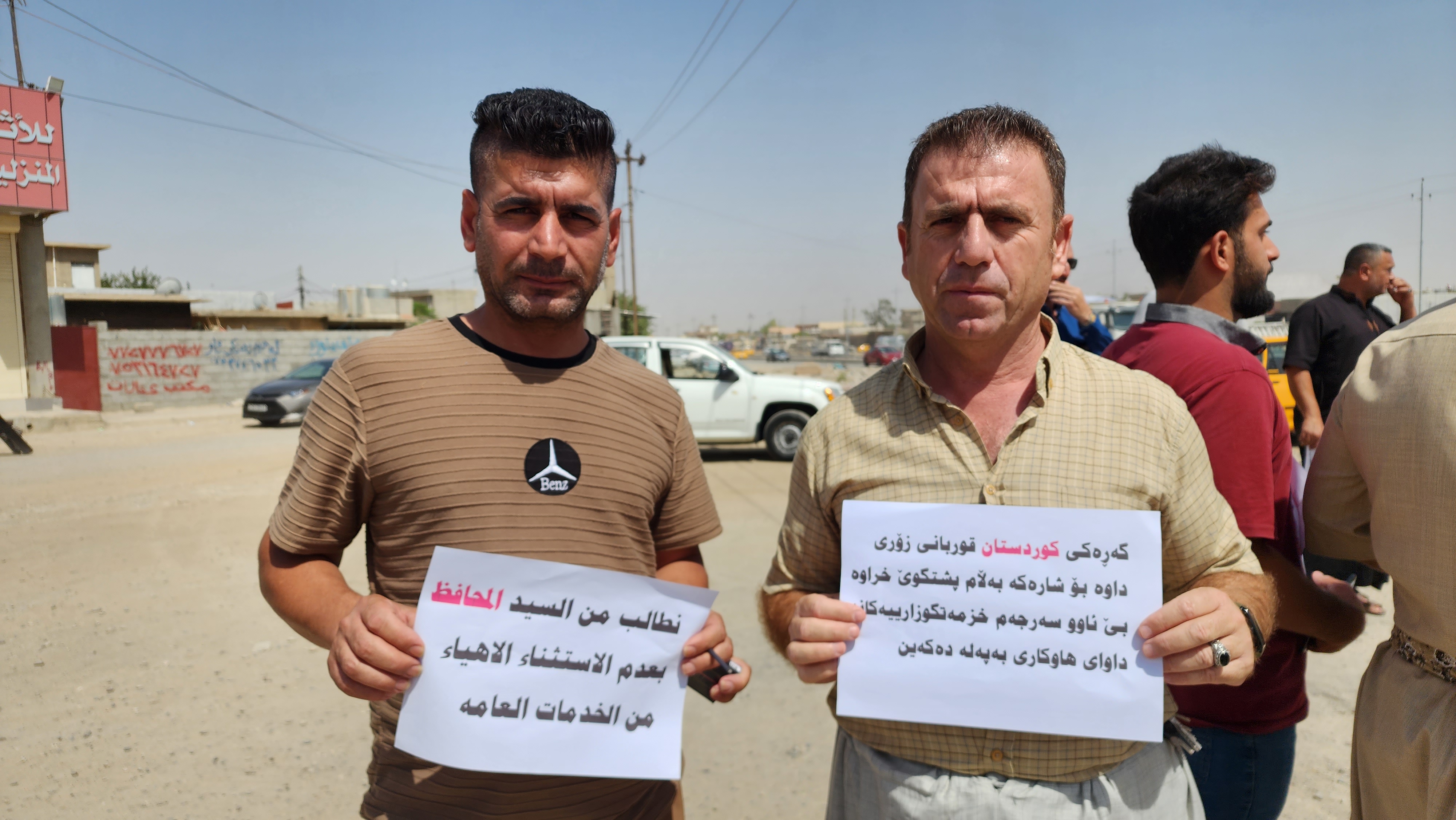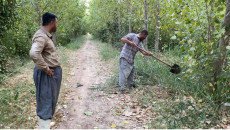Residents of several neighborhoods in Kirkuk are suffering from lack of water and some of them have not received drinking water for more than a month, while the temperature in the city reaches half of boiling point.
According to KirkukNow's reporter, the problem of water shortage or lack of water, mostly affected the neighborhoods of Kurdistan (Faylaq), Tapa, part of Rahimawah, Arafat and Badri.
“Water shortage is not only in the hot season and summer; it resurfaces across the year. A ruling party member opens water to households at will and whenever he wants,” Dilshad Hussein, a resident of Kurdistan neighborhood, told KirkukNow.
He says despite several protests and demonstrations, but to no avail, the problem of lack of drinking water continues.
The latest demonstrations of some residents of the neighborhood was last week and earlier last year, more than once due to the lack of water.
KirkukNow reporter confirmed that the water shortage continued in these areas until Sunday afternoon, July 16.
The northern oil-rich city of Kirkuk, 238 kilometers north of Baghdad, is an ethnically mixed province for 1.7 million Kurds, Sunni and Shiite Arabs, and Turkmens. It has long been at the center of disputed territories between Baghdad and Erbil.

Kurdistan neighborhood residents protest against water scarcity, Kirkuk, July 2023. KirkukNow
Havana Ali, a resident of Rahimawa neighborhood, and 50 other families in the area have not been provided drinking water by the government for more than a month, so they constantly buy water by tankers.
A tanker of 3,600 liter of drinking water is sold to households for 35,000 Iraqi Dinars IQD (USD24).
Kirkuk is one of the main disputed areas in addition to Diyalah and Nineveh that a three-stage process outlined in Article 140 of the Iraqi constitution in 2005, stipulating normalization, a population census and a referendum on the status of the territories, was drawn to put an end to Erbil-based Kurdistan region government KRG and Iraqi Federal government dispute over these areas.
“The person responsible for providing water gives water to certain areas and neighborhoods whenever he wants. After we demonstrated, it has improved and they distribute water equally,” said Jamal Ahmad, a resident of Tapa neighborhood in Kirkuk name).
According to the Iraqi weather forecast, the temperature in Kirkuk is between 46 and to 50 Celsius degrees.
Nearly 3 out of 5 children in Iraq have no access to safely managed water services and less than half of all schools in the country have access to basic water risking children’s health, nutrition, cognitive development, and future livelihoods, says the United Nations International Children's Emergency Fund UNICEF, now officially United Nations Children's Fund, an agency of the United Nations UN responsible for providing humanitarian and developmental aid to children worldwide.
Jihan Ismail, deputy director of the Kirkuk Water Distribution Directorate, told KirkukNow that the water shortage problem in Kurdistan neighborhoods and parts of Rahimawah and Tapa “is due to low electricity voltage ".
Electricity supply has decreased in most Iraqi provinces, including Kirkuk, especially during the summer season.
An informed source who spoke to KirkukNow on the condition of anonymity said the electricity distribution directorate has promised to solve the problem of energy supply, so that the water pumps operate on time and provide water to the neighborhoods of Amala Shaabi, Kurdistan, Arafa, Tapa, Rahimawah and Badr.
Iraq has been named the fifth-most vulnerable country to climate breakdown, affected by soaring temperatures, insufficient and diminishing rainfall, intensified droughts and water scarcity, frequent sand and dust storms, and flooding, says a report by the United Nations International Organization for Migration IOM (Migration, Environment and Climate Change in Iraq) published in August 2022.
Former Water Resources Minister, Mahdi Rashid Hamdani, last August said that Iraq is suffering from climate change and the destruction of water resources due to the lack of agreement between them and the countries that source Iraq's rivers.
Regarding the efforts of his ministry, he said that they constantly ask the countries of the Tigris and Euphrates water sources to participate equally in the increase and decrease of water levels, working to adapt to climate change and take necessary measures.






